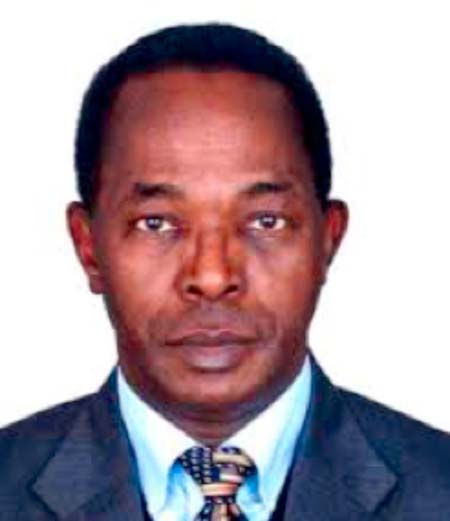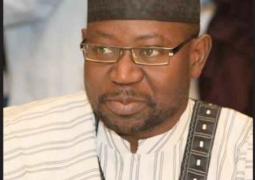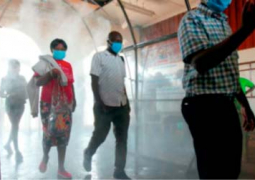
When English in schools is compulsory and agriculture optional, this country will never feed itself. Students will continue to go to school on an empty stomach. When food
imports continue to be higher than domestic production of food, this country will never attain food security. Napoleon said, “An Army marches on its stomach”. A hungry Nation cannot be a productive Nation. An observer on developing countries said, if the people are to benefit from development without long waits for its spread effects or
trickle down effects, then development must act directly in the agriculture sector itself. Empowering small holder farmers is not the solution to food security. It encourages
subsistence farming that cannot bring about self-sufficiency in food. There is no better strategy to alleviating poverty than moving agriculture in a rapid and
substantial manner. Commercialization of agriculture is the answer to sustainable development. This can be done
through state owned farms and private sector investors in agriculture. Experience has shown that Project driven agriculture activity has never been a solution to the needs of the country for food security. The agriculture sector has been one of the most endowed with donor support since Independence. Yet, the country is food poor. It makes sense that donor money is pumped into commercial agriculture in addition to the government inputs. The Chinese have several factories that manufacture all types of agricultural machinery and appropriate technology that makes farming less Labour intensive. Food production will be substantially increased with Chinese agriculture technology and machinery. The government can approach the Chinese government for a team of young Gambian
men and women, especially those inclined towards agriculture, to be trained in China for at least six months in different farming methods and in crop diversification areas.
Upon their completion, provide them with basic agric-machinery and simple machines to engage in food production upon their return home. Alternatively, the government can request Chinese Technical Assistance for their various specialists in food production to come to the country for one or two years to engage nationals in serious
food production activities targeting all essential commodities. This move is a fundamental necessity if we are serious about food self-sufficiency and turning the
country into an export Nation. We cannot contain inflation if we continue to be a consumer society. In a country
where most of the top decision makers are children of farmers, one wonders why a drastic approach to revamp the agriculture sector and orientate it towards food security
should be a problem. We cannot expect the outside world to tell us how to move in the direction of feeding ourselves and exporting surplus production to earn us the much
needed foreign exchange. The developed world concentrated on agriculture first before the Industrial Revolution. If countries with populations of 1.1 billion, 1.2 billion, 1.4 billion can feed themselves, why can’t smaller populations like ours, feed ourselves. This is a sad story to reflect on in this day and age in our development trajectory. With the massive infrastructural projects in roads and bridges undertaken by the government, the transportation of agriculture goods will be enhanced. It
must be stated that for agriculture to take off big time and be meaningful to the people, it must be backed by the
provision of food processing and packaging facilities and cold storages in strategic locations across the country.
Again, the Chinese have the machinery, equipment and technology for all types of food processing, packaging and
cold storage. Why can’t the government request for assistance in the procurement of these things or take a deliberate national policy decision to inject donor funding
into getting these items in the country for the benefits of producers. It will be better than giving donor money to farmers and communities for which there will be no real
agriculture outputs at the end of the day. We must rethink about which direction we want to see agriculture development proceed. If we cannot feed ourselves then
we are our own enemy and must bear the brunt of inflation, foreign exchange difficulties, exploitation of our economy by our foreign dominated business environment. CAN WE FEED OURSELVES is a lingering question over our heads. The Nation’s health cannot be secured if we
continue to put our mouths in the kitchens of outside countries. Our best bet is to grow what we eat and eat
what we grow.
When agriculture policies are designed without inputs from farmers, the objective realities on the ground will show the
missing links in the development of the sector. Gambian farmers have always highlighted their bottlenecks in farming such as lack of sufficient fertilizers and the prices, inadequate inputs, poor field conditions resulting in low yields, unpredictable weather conditions, lack of tractors, animals and pests disturbances, access roads, and so forth.
The political leadership must be decisive in the direction the sector should take and to ensure that it filters into policy decisions and implemented accordingly. The uplift of
the people from poverty to prosperity and from the pain of the high cost of living to better living standards is both governance imperative and political responsibility of the
government. The need to make agriculture work in the interest of the population and the economy cannot be overemphasised. Although, it must be said that efforts are
being made to uplift agriculture, it is not sufficiently reflective of the realities of the food security sector. It has been said that a country like Mali that is landlocked, does not import rice. Burkina Faso, which is a landlocked country, is fully engaged in agriculture production. This country is gifted with a river that can make agriculture
production ideal. The YEAR OF RESULTS should target the agriculture sector for increased food production. Agriculture is either the key or answer to sustainable development.





